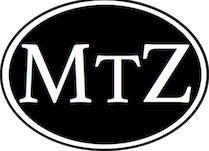Recently we took a good look at ourselves, those who help us work the fields in the Grand Traverse Bay Area. We began by asking focused questions about our talents, gifting, and strengths.
How are we doing as a leadership core and what are we doing well?
Gallup finds that, “An overarching emphasis on strengths allows employees to form better connections – in part because strengths are a springboard for meaningful conversations that build trust and help groups accomplish their most important goals.”[1]Brandon Rigoni and Jim Asplund, “The Best Way to Build a Strengths Coaching Culture,” Gallup: Business Journal, December 1, 2016, accessed December 15, 2016, … Continue reading
“better connections . . . meaningful conversations . . . build trust”
We turned a corner over a year ago when we started having conversations about our strengths. Something has changed. There has been real edification – building up.
We’ve had “meaningful conversations” in many areas. Some of our leaders are engaging their role more effectively. Others are taking on new roles, or trying temporary roles. Our teams are energized by the conversations.
A little research introduced to our leadership team has given us new freedom and license to explore the strengths and talents that we each have.
Community formation is at the heart of Strengths research
Gallup states, “By uniting employees around strengths, managers promote deeper, more productive and more engaging relationships among workers throughout the company.”[2]Ibid.
Central to leadership development, even in the marketplace, is a commitment to, “more engaging relationships.” How much more so should this be evident in a congregation? We’re not a machine. We’re a community of faith. We do life together.
Mt. Zion has a reputation as a friendly church. We’re a family oriented church, not because of families, but because individuals are at home in our Christian family. This is the way Mt. Zion has operated for years. To borrow from cell phone marketing in their time, the Wermuths (our Former Pastors) say they grew the congregation on “The Friends and Family Plan.” Community formation is at the heart of who we are and at the heart of strengths research.
How does our leadership team measure up?
In the Christian book Living Your Strengths, it is reported that, “more than half of churchgoers report that they don’t get to do what they do best in their congregations or parishes.”[3]Gallup, “Living Your Strengths,” Gallup: Press, 2016, accessed December 15, 2016, http://www.gallup.com/press/176561/living-strengths.aspx. They’re not plugged in, and they’re not plugged in where they want to be.
We also have some workers who may not be serving in their strengths but are striving to make a change or remedy. However, we have a very strong leadership team. We have many committed workers. Right now at Mt. Zion, about 50-60% of our people are engaged in regular service.
Do you know what the average has been for years in America? It has been 20%. Recently, the Barna Group found that the number of people volunteering at a church on a weekly basis is only 19%.[4]Barna Group, “The State of the Church 2016,” Barna: Faith and Christianity, September 15, 2016, accessed December 15, 2016, https://www.barna.com/research/state-church-2016/.
We are aware of this and grateful for all who serve! We dream about what our leadership core is actually capable of. There are still untapped resources in the hearts of our leaders that God wants to bring to fruition.
Are numbers the bottom line? No Mt. Zion is building a community of faith
Let’s review the language of the Strengths research: “better connections . . . meaningful conversations . . . build trust . . . uniting . . . deeper, more productive and more engaging relationships.”
When I think of this language, I think of Paul explaining similar ideas to the Thessalonians in his first epistle:
1 Thessalonians 2.8, NRSV: “So deeply do we care for you that we are determined to share with you not only the gospel of God but also our own selves, because you have become very dear to us.”
He says, “So deeply do we care for you.” The word picture is desire, longing for, or even the longing of love. We care for you with deep heart-felt emotion.
He adds, “we are determined to share with you.” We are willing, but willing in the Biblical sense. The word will is not just a mental decision. Will involves the heart, pleasure, and emotions. It’s not only intellectual, but stirred from deep within.
We’re called to share our souls, ourselves, with each other
A determination rises up within us that we are going to share the Gospel with you, but we are going to cross boundaries and share ourselves. The phrase, “our own selves,” is the Greek word psyche. It’s the word soul. The New International Version says we’re called to share “our lives.”
This is Christian community. He says the reason why is because, “you have become very dear to us.” This word “dear” is a form of the word agape. It is the same word that the Father uses when He describes His Son. “Here is my servant, whom I have chosen, my beloved, with whom my soul is well pleased” (Matthew 12.18a, NRSV). Beloved means dear one, dearly beloved, or even favorite. The Father calls Jesus Beloved, and we are Beloved in Christ. Paul turns around and uses the same term for us as the family of God.
Henri Nouwen declares, “The Christian community is a community of people who remind each other who they truly are – the beloved of God.”[5]Henri J. M. Nouwen, Beloved: Henri Nouwen in Conversation with Philip Roderick (Grand Rapids, MI: Wm. B. Eerdmans, 2007), 20.
We’re dear to each other. Our relationships and strengths are vital to each other. We’re building well. We’re Sharing the Gospel and Ourselves.
Footnotes
| ↑1 | Brandon Rigoni and Jim Asplund, “The Best Way to Build a Strengths Coaching Culture,” Gallup: Business Journal, December 1, 2016, accessed December 15, 2016, http://www.gallup.com/businessjournal/198581/best-build-strengths-coaching-culture.aspx. |
|---|---|
| ↑2 | Ibid. |
| ↑3 | Gallup, “Living Your Strengths,” Gallup: Press, 2016, accessed December 15, 2016, http://www.gallup.com/press/176561/living-strengths.aspx. |
| ↑4 | Barna Group, “The State of the Church 2016,” Barna: Faith and Christianity, September 15, 2016, accessed December 15, 2016, https://www.barna.com/research/state-church-2016/. |
| ↑5 | Henri J. M. Nouwen, Beloved: Henri Nouwen in Conversation with Philip Roderick (Grand Rapids, MI: Wm. B. Eerdmans, 2007), 20. |

